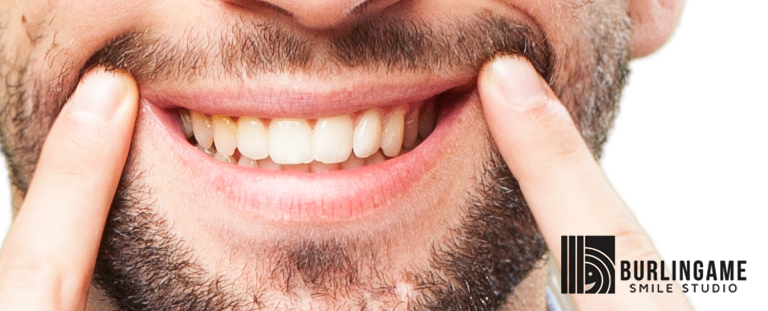Malocclusion is simply a fancy term that describes the condition of having crooked teeth or a “bad bite.” When dental professionals talk about your “bite” they are referring to the way the upper and lower teeth meet and line up.
In a normal, healthy bite, the upper teeth will naturally sit slightly forward of the lower teeth when the mouth is closed. But the reality is that very few people actually do have what could be considered a perfect bite.
What causes Malocclusion?
Malocclusions may be a result of overcrowding in cases where an individual’s mouth cannot comfortably accommodate all their teeth, or cases of improper spacing between teeth, crooked teeth, or tooth loss causing the remaining teeth to shift from their proper position.
In some cases, the propensity for malocclusion may be hereditary. Some children develop malocclusions as a consequence of thumb sucking, or due to excessive or incorrect use of bottles and pacifiers.
While your child’s first dental checkup should occur at around one year of age, the American Association of Orthodontists recommends that children be examined by an orthodontist and screened for malocclusions such as overcrowding by age 7. Early detection and intervention may prevent more advanced problems down the road.
Some malocclusions develop in adolescence or even during adulthood as a consequence of such habits as teeth grinding, which is also then exacerbated my malocclusion, leading to a vicious cycle.
Research findings have also indicated that long-term mouth breathing may be linked to the development of certain types of malocclusion, but it has not yet been clearly established why this link seems to exist.

Why is it Important to Treat Malocclusion?
While most people approach malocclusion and problems of the teeth and bite as simply a cosmetic concern because they don’t like the way their smile looks, a malocclusion may actually develop into a serious condition that can also impact the function of the teeth and jaw, as well as the patient’s comfort and quality of life.
Malocclusion, when left untreated, may affect such things as a person’s ability to eat and chew properly. In severe cases, malocclusion may even affect a person’s ability to speak properly. Additionally, there is the psychological impact affecting one’s self-confidence and self-esteem, and many people develop a habit of smiling with their mouths closed in order to cover up an unsightly malocclusion.
Seriously, who wants to live like this?
Malocclusion can also make it more difficult to properly care for your teeth, as it may be harder to clean properly and thoroughly between teeth when they are overcrowded or crooked. And this can have devastating consequences, as harmful oral bacteria accumulates in your mouth, leading to such problems as gum and periodontal disease, potential loss of teeth, and subsequent bone loss, all of which will potentially require extremely expensive treatments to treat and correct.
How is Malocclusion Treated?
Orthodontic treatment, provided by an orthodontist, is the indicated method to efficiently correct the vast majority of malocclusions and problems of the bite and jaw, leading to an improved quality of life for patients. Orthodontists are specialized dental professionals who are trained specifically in restoring the teeth and jaw to a healthy position and function.
In extreme cases of malocclusions or orthodontic problems that do not respond to standard orthodontic treatment, orthognathic surgery, performed by a trained maxillofacial surgeon, may be indicated, but these cases are relatively rare. In many cases, orthognathic surgery may be avoided if orthodontic treatment is provided early enough in the patient’s dental development.
Orthodontic treatment typically takes an average of two years to correct malocclusions and restore a healthy bite, but it may take longer in adult patients or in those with more severe conditions. Most patients will also have to wear some type of a retainer over a much longer period, or permanently, in order to maintain results after orthodontic treatment.
If you are concerned about crooked teeth, teeth that stick out, problems with overcrowding in your mouth, or any other malocclusion, contact Dr. April Lee to discuss your options for orthodontic treatment at Burlingame Smile Studio. Contact us today at 650-231-2680 or email us at info@burligamesmilestudio.com. We look forward to hearing from you!
